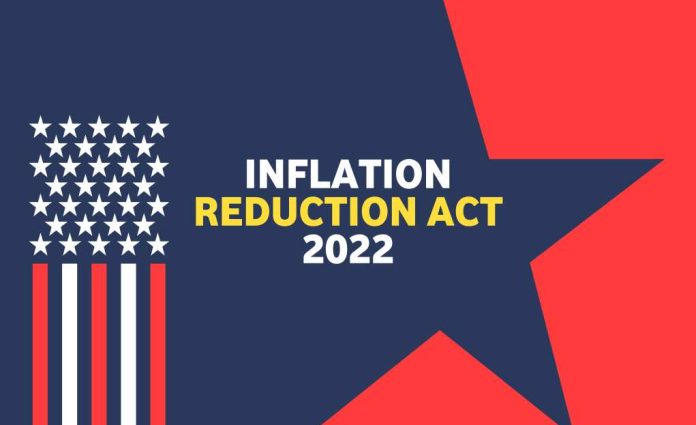
Inflation has been hard for Americans to deal with, which is why the government has been trying to create supportive legislation. It should come as no surprise that President Joe Biden signed the Inflation Reduction Act of 2022 into law. He did this on August 16th, 2022.
Understanding the Inflation Reduction Act
This act is basically a smaller version of the Build Back Better bill. Through this act, there are a lot of benefits that Americans can see. Some of the benefits of this bill include fighting against climate change, lowering how much people pay for prescription drugs, and raising taxes that corporations need to pay. It’s important to keep in mind that some of the benefits may be available right away. On the other hand, some of the benefits will be seen later on.
For example, one of the benefits is the continuation of the Affordable Care Act (ACA). This continuation means that premium subsidies will stay in place until 2024. Originally, they were due to expire in 2022. They are beneficial because they lower the cost of health insurance! However, caps on drug costs for seniors won’t be in place all the way until 2025. It’s also worth noting there are estimates that show the inflation rate will remain unchanged even with this bill.
Some of the biggest changes that come along with this bill include:
- Taxing corporations at a minimum of 15%
- Changes to prescription drugs
- Changes to the Internal Revenue Service (IRS)
- An extension on subsidies for the American Care Act (ACA)
- Focus on climate change
Taxing Corporations at a Minimum of 15%
Don’t go thinking that all corporations will have this tax rate. Instead, only corporations that make a minimum of $1 billion in income will deal with this updated tax rate. Luckily, the taxes that households and individuals deal with won’t increase.
Changes to Prescription Drugs
Medicare will now have the ability to negotiate the cost of specific prescription drugs. Why is that important? Well, that means it can bring down how much beneficiaries pay for their medication. Starting in 2025, there will be a limit for out-of-pocket (OOP) drug expenses yearly of $2,000.
Changes to The Internal Revenue Service (IRS)
The IRS felt that they were underfunded and weren’t able to properly handle their responsibilities. That is why this act focuses on providing a whopping $80 billion to the IRS over the next decade!
An Extension on Subsidies for the American Care Act (ACA)
As of 2022, medical insurance premiums under the ACA are subsidized by the federal government. This is important because this reduces premiums. It was set to expire in 2022. However, this act extends these subsidies all the way through 2025. This is especially important because if this act didn’t happen, roughly 3 million Americans could have lost their health insurance (according to the United States Department of Health and Human Services [HHS]). On top of that, through this extension, households may be able to save on average $800 annually!
Focus on Climate Change
There will be investments that go towards protecting the climate. Some specific opportunities include tax credits and investments in making clean energy. For example, some of the tax credits focus on giving qualifying low-income households a rebate if they either install or upgrade to energy-efficient appliances. Another example would be the opportunity that consumers have to get tax credits for 10 years so long as they upgrade their rooftop solar panels, heat pumps, specific water heaters, etc. In fact, households could see savings of $1,800 annually.
Will This Act Actually Help?
Even though the name of the action is the Inflation Reduction Act, there may not be a huge amount of inflation that gets lowered. In fact, it’s expected there won’t be any reduction (according to the Penn Wharton Budget Model [PWBM]). Besides this agency, another agency that expects barely a dent in inflation for the short term is the Congressional Budget Office (CBO). All in all, consumers shouldn’t expect immediate relief when it comes to reducing the high prices!
Another Way to Handle Inflation
If inflation is difficult for you, you have the power to try to make it more manageable. You can do it by lowering the costs that you deal with which means having a proper idea of your finances. Life is expensive. Living day-by-day adds up. That is why you may benefit from lowering your expenses.
However, before learning about different ways to lower your costs, you want to make sure you have a clear picture of what’s going on with your finances. You will want to list the expenses you have to deal with every month. This will show you where your money is going and help you understand where you can cut back! There are plenty of ways to lower your costs per month. Some popular ways include:
- Getting Rid Unused or Unnecessary Subscriptions
- Comparing Insurance Rates
Getting Rid of Unused or Unnecessary Subscriptions
There are plenty of subscriptions that people can get. You will want to get rid of ones that you either don’t use or really don’t need. For example, let’s say you have a subscription to four streaming platforms. Instead of having four different subscriptions, you can choose to go down to one streaming service. On the other hand, let’s say you have a subscription for different types of olive oil. You don’t need to try different flavors of olive oil every month. Instead, you can cancel this and restart it when you are in a better financial situation.
Comparing Insurance Rates
Another important way to get the most bang for your buck is to compare insurance rates. When you get insurance, you know you need a specific type of coverage. However, not every company offers the same prices. That is why it is important to compare your options. Regardless of the type of insurance, you can benefit from checking out different costs depending on the company. You may be surprised to find you can get the exact same coverage for a fraction of the price you are currently paying!
Overall
When it comes to inflation, the government has passed an act in hopes of helping Americans out with this problem. One of their solutions was the Inflation Reduction Act. This act aims to help Americans through different means. Some of the benefits that come along with this act include:
- Taxing corporations at a minimum of 15% as the tax rate
- Changes to prescription drugs
- Changes to the Internal Revenue Service (IRS)
- An extension on subsidies for the American Care Act (ACA)
- Focus on climate change
While this act is not expected to make any drastic changes to the rate of inflation, there are some ways that you can handle inflation besides the benefits from this act. This includes getting rid of unused or unnecessary subscriptions and comparing insurance rates. These measures may be able to help!
















